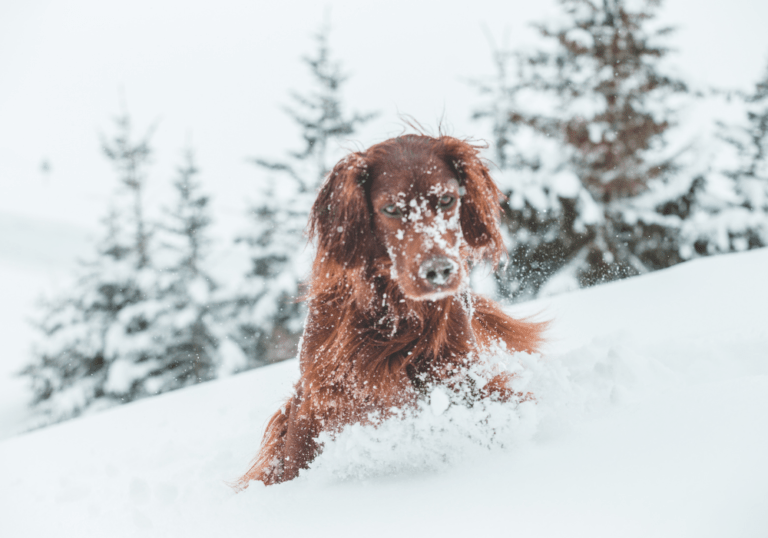Cold Weather Pet Safety: How to Protect Your Pet When the Weather Turns Cold

As the temperature drops, it’s essential to ensure the safety and well-being of your pets. Cold weather can pose several health risks, including skin irritations, hypothermia, and frostbite. To help you keep your furry friends safe and comfortable during winter, we’ve compiled six crucial tips for cold weather pet safety.
1. Use Pet-Safe Antifreeze
Antifreeze is a common winter hazard that many pet owners overlook. Its sweet scent attracts animals, but even a small amount can lead to kidney failure and death. To ensure your pet’s safety, replace your regular antifreeze with a pet-safe version.
Before adding the new antifreeze, flush out the old one and dispose of it properly. Topping off with pet-safe antifreeze without flushing the old type can still put your pet at risk. Always wipe up any spills or puddles to keep your pets safe from this dangerous substance.
2. Pay Extra Attention to Your Pet’s Paws and Pads
The cold weather can be harsh on your pet’s paws. Ice, snow, rock salt, and chemical de-icers can lead to painful irritation or even frostbite. Make it a habit to wipe your pet’s paws after every outdoor excursion.
To provide extra protection, consider applying a layer of petroleum jelly before heading outside. Pet-sized boots can also be an excellent option, preventing contact with harmful substances and reducing slips on icy surfaces. Remember to check for clumps of snow or ice between their toes and remove them promptly.
3. Limit Outside Time on Freezing Cold Days
While your pet’s fur coat may offer some insulation, it may not suffice during extremely cold temperatures. If it’s too cold for you to stay outside, it’s likely too cold for your pet as well.
Although outdoor shelters, like doghouses, provide some protection, they may not prevent cold-related health issues. For short-haired, hairless, elderly, or sick pets, a warm sweater may be advisable when venturing outside.
4. Make Sure Your Pet Wears Tags
Winter can make it particularly challenging to find a lost pet. Ensure your furry friend wears a collar with an ID tag, even if they are microchipped. While vets and shelters can scan microchips, good samaritans may not have the necessary devices to help reunite you with your pet quickly.
5. Protect Your Pet from Indoor Hazards
Cold weather often leads to increased use of fireplaces, heaters, and candles, which can pose dangers to your pet. To prevent accidents, set up baby gates around fireplaces or heaters to keep your pets at a safe distance.
If you use kerosene heaters, position them securely away from your pets, as they could accidentally knock them over and cause a fire. Battery-operated flameless candles are a safer alternative, providing ambiance without the fire hazard.
6. Don’t Leave Your Pet in a Cold Car
Just as hot cars can endanger pets in the summer, cold cars can pose significant risks during the winter. Cars can trap cold air, acting like refrigerators. If you plan to be out of the car for more than ten minutes, take your pet with you or leave them at home for their safety.
If you need more help or have any questions, call us at Willow Glen Pet Hospital, visit us online at willowglenpethospital.com, or contact us at (669) 342-7472. Our address is 1033 Willow Street, San Jose, CA, 95125, US. Our hours are Monday – Saturday from 8:00 am – 6:00 pm, where you can consult our doctors, Dr. Gillon or Dr. Shani.
